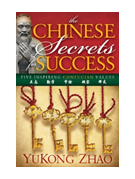In his column “The Shanghai Secret” of October 22, 2013, Thomas Friedman attributes Shanghai educational success to “its ability to execute more of these fundamentals in more of its schools more of the time.” Usually, Friedman challenges us to open our mind to see the big picture of the changing world, but this time he fails to go one step further, emphasizing that the bigger secret behind the educational success of Shanghai and other East Asian countries (all score among highest in 2009 PISA international education assessment) is their Confucian heritage. It is the Confucian values on education that makes Shanghai’s education progress possible and fast.
First, most people in Confucian influenced societies emphasize education, and do not worship celebrities. Most parents view education as the primary way for their children to achieve upward mobility, and to have a great future. In these societies, people respect knowledge, teachers, scientists, and experts, instead of following Kardashians or Honey Boo Boos. Shanghai’s schools and teachers are blessed with a pro-education culture, which makes their work much easier than that of their American counterpart’s.
The second, according to Confucianism, parents have an inescapable responsibility to educate their children. As a result, Chinese parents devote unparalleled efforts in motivating and supporting their children’s education throughout their school years. One of Shanghai’s key education successes was the improvement of education quality for schools with students predominantly from poorly-educated migration worker’s families. Similar to less educated families in the US, their children have poor academic performances. After the Shanghai education department started teacher’s training and tailored programs towards such students, it immediately generated results, because, every migration worker, like every other Chinese parent, wants their child to have a great education. Parental support is an essential part of Shanghai success.
Unfortunately, in the US, a significant number of parents either do not have the similar level of passion on education or do not know the proper parenting methods to support their children’s education. I recently attended an education gathering for disadvantaged neighborhoods in Orlando. The low parent participation disappointed both the organizer and me. It clearly underscores the importance to create a pro-education culture for these parents.
The third, in Confucianism influenced societies children are rewarded and respected in learning. In China, Korea, Taiwan, Hong Kong and Singapore, academic performance, not sports, is the most important performance indicator for students. They feel cool in learning. Students with excellent academic performances are regarded as heros, not ridiculed as “nerds” like they are in the US. When a student wins a major academic competition, his/her name will be in the newspaper the second day. Last year, I took my kids to participate in the National Junior Beta Convention in which my son won the Championship in the Science Competition. To my surprise, no English media, neither local nor national, covered winners of this convention. When we only glorify sports stars, singers and movie celebrities, our children are likely follow suit, pursuing these non-education based careers. However, in these non-education based areas, career opportunities are quite limited.
The fourth, Confucianism has provided many lasting wisdoms in education. When children are young, Chinese parents encourage them to Lizhi, to have big dreams for their future. This motivates them to learn. 2000 years ago, Book of Rites, a Confucianism classic, already documented many education principles, from which most Chinese educators and parents still benefit. Here, I’d like to clarify that, the wisdom behind Chinese parenting is much broader than the strict Tiger Mom parenting, as portrayed by Amy Chua in 2011.
Clearly Shanghai also benefited from learning from the West: They reduced schoolwork from their overloaded students and encouraged creativity in classrooms. Nevertheless, they do not go too far to lower the education standard as we did in the US. As one Chinese newspaper commentary pointed out, winning PISA assessments proves the importance of building a solid academic foundation for students.
It is worthwhile to point out that, with the same cultural heritage, Asian American students with East Asian origin perform among the best in our schools. They dominate our nation’s top science and engineering colleges. In the nation’s most prestigious high school science competitions, including the Intel Science Talent Search and Siemens Science Competition, over the last five years, more than 20% of the national prizewinners have Chinese or East Asian heritage, while they make up only about 2% of the U.S. population. This is great testimonial of the positive influence of Confucianism on education.
I am glad that American educators have taken first step to Shanghai, to learn from their schools. To improve American education, we also need address the parenting and cultural side of the equation. The good news is, they do not have to travel far. Many Asian American families are great examples of parenting success!
This blog was first published on November 14, 2013 on ChineseSecretsforSuccess.com.



